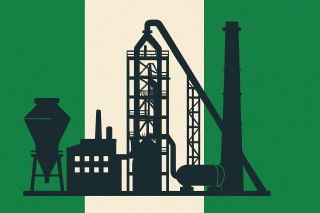This week HeidelbergCement-owned Suez Cement and Tourah Cement reported their 1H19 results with further declines in sales, leading to wider losses for both Egyptian cement producers. The poor results are part of the continuing trend in which Egyptian cement sales fell by eight per cent in 1Q19.
In June 2019 Tourah Cement suspended cement production because of the financial distress caused by oversupply in the market. The company, which was founded in 1927 as Egypt's first cement plant, was considering liquidation following on from the closure of National Cement in 2018, according to Reuters.
"Estimated cement consumption [in Egypt] during 2019 will end at around 50Mt, while total capacity of all competitors stands above 85Mt[a]," said Jose Maria Magrina, Tourah Cement's managing director.
Tough market conditions
The additional cement output from the US$11.12bn Egyptian Armed Forces and government-owned El Arish cement plant is expected to make it challenging for many more companies as it is the newest, largest and most efficient plant in the country.
Moreover, there is still further capacity to come on-stream in Egypt with the El Sewedy Cement plant adding a 2Mta line in Ain Sokhna, which is a project being carried out by FLSmidth, while Egyptian Cement (owned by Egyptian Steel) has contracted Sinoma-CDI to build a new 2Mta plant in Sohag.
Declining sales have been seen across the board with Titan Cement declaring the Egyptian market as contracting five per cent in 1H19. Vicat reported that its combined Egyptian and Turkish turnover had seen a fall of 31.8 per cent in 1H19 to EUR75m.
Rising fuel costs are also making it harder for producers to maintain margins with Arabian Cement announcing this August that it has signed an agreement with Egyptian Refining Co (Qalaa Holdings) for the supply of 272,155t of petcoke to help reduce its production costs.
Looking for solutions
Turning around sales is not going to be quickly achieved with the amount of overcapacity in this market, which is expected to see more consolidation. Suez Cement has launched an incentive programme for its customers under the name 'Primo' and supported by the slogan "buy more...collect more" to try and build more brand loyalty in the market place. Primo is aimed at providing existing customers with points that can be exchanged for shopping coupons and bonuses for subscribers.The initiative forms part of the company’s strategy to strengthen its communication with customers, deepening its position in the Egyptian cement market.
Cement exports: a lifeline?
The alternative for many producers to cutting back production or seeking potential mergers is to try and increase export sales. However, Egypt's traditional export markets in the Middle East, such as Syria and Libya, are still politically unstable, even if the potential for reconstruction is huge.
It is estimated that Libya's reconstruction will cost US$20bn in its initial phase, according to the Libyan Trade Association. Egyptian construction companies are already contacting the African Development Bank, the World Bank and the European Investment Bank to bankroll projects in Libya, reports The Arab Weekly. However, security is still an issue and there is competition from Chinese and Turkish construction companies.
